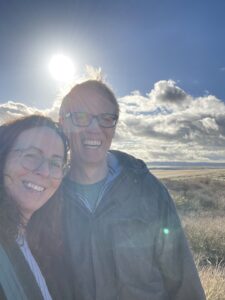
Having just returned from our own short break to the south coast, as a psychology graduate I was interested to read why I felt so good after just a few days away.
Studies show that people enjoy good things in life (like listening to music or getting a relaxing massage) more if they break them up into smaller pieces. Research shows we hit peak holiday feeling at hour 43, but we lose it less than 4 days (3.7 days) after unpacking our suitcases back at home. In fact 23% of holiday feeling moments occur before we set off.
Dr Tali Sharot Director of UCL’s Affective Brain Lab, who conducted a qualitative study of guests at a TUI Sensatori resort in the Dominican Republic commented: “It’s interesting to see that a significant number of the key triggers that ignite positive holiday feelings happen before we even set foot on the plane. A brain imaging study we conducted in 2010 showed that just imagining a holiday can spark the feeling of anticipation and joy which activate the brain’s “reward centre” – the striatum. This part of our brain receives input from dopamine neurons, providing us with anticipation of pleasure. In other words, just thinking about going on holiday – or planning your next holiday when you return home – will activate the reward system in your brain.”
When asked what they enjoyed most about their holidays, one word appeared again and again: first. Vacationers spoke of the joy of “seeing the ocean for the first time”, the “first swim in the pool”, the “first sip of a holiday cocktail”. Firsts seemed hugely important. You cannot habituate to a first. Which is not to say that they found themselves miserable by the end. Even when they returned home, many still benefited from a warm holiday afterglow. Still, less than a week passed by before they quickly adjusted to home life – work, school runs, bills. Within seven days, it was difficult to detect any effect of the time away on their mood.
While a fortnight in the sun at a hotel is lovely, the joy experienced during the first hour fades over time. The reason? Habituation. That’s our brain’s tendency to respond less and less to things that are constant, that don’t change. As we get used to the pleasant aspects of our life, both big (our families, home and pets) and small (glass of wine, reading a great book), we notice and appreciate them less. Unless, that is, you break up the experience.
This evidence suggests that you might benefit most from several small trips spread through the year, rather than one long escape. That way, you will maximise firsts and afterglows, not to mention the pleasure of anticipation, which you will experience more often. Why not take a break, and enjoy it all over again?